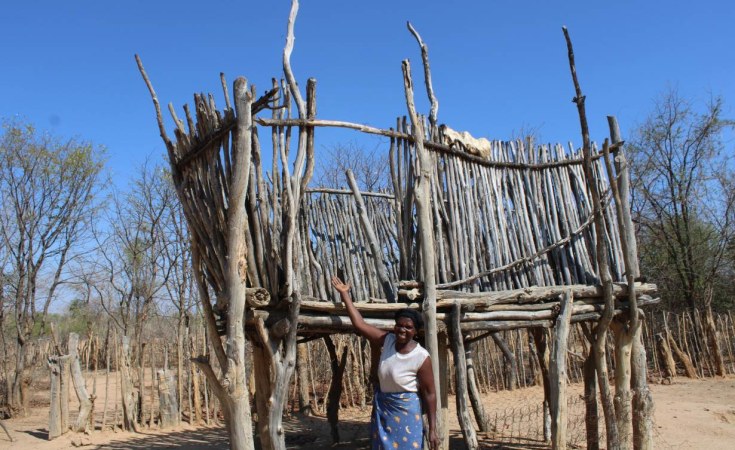Millions of people across Southern Africa, are grappling with the dual crises of hunger and flooding. Over half of Malawi's 19 million population, six million people in Zambia, over three million in Zimbabwe, and three million more in Mozambique are facing hunger. Meanwhile, in Mozambique's capital Maputo, floods wreaked havoc due to persistent heavy downpours that affected more than 50,000 people, barely two weeks after Tropical Storm Filipo hit parts of the country.
Since January 2024, extreme climate shocks in the region have killed more than 130 people, destroyed over 2 million hectares of crops, and damaged over 7,000 homes and public infrastructure like roads, health centers, and hundreds of schools.
The hunger crisis is now pushing people in the four countries to resort to negative coping mechanisms such as skipping meals and selling their only assets to survive.
Eliza Anthony from Malawi's Chikwawa district whose family home was washed away by the March 2023 Cyclone Freddy induced floods says: "Last week, my family did not have something to eat for a full day and the following day we survived on porridge only. This year has been harsh since all the crops that we planted have dried up and we now must find alternative means of survival."
In Zambia,Malawi and Central Mozambique, extreme drought caused by El Nino has damaged over two million hectares of crops including maize and other food crops. As a result, Malawi and Zambian governments have since declared a State of Disaster and Emergency. This marks the fourth year that Malawi has declared a state of disaster due to the impacts of extreme weather conditions since the year 2020.
Despite contributing a tiny fraction of global carbon dioxide emissions, the region has become a climate disaster hotspot. For instance, since 2018, Mozambique - a country responsible for only 0.2% of global emissions - has been hit by cyclones and tropical storms twenty times.
The recurrent extreme weather conditions have left citizens, especially the most vulnerable unable to cope while their governments lack the resources to support their citizens and rebuild. The estimated post disaster effects from Cyclone Freddy alone is USD1.5 billion in Mozambique and USD500 million in Malawi.
Jose Mucote, the Executive Director of Associacao Ajoago, Oxfam's partner in Mozambique, says: "Many people have nothing to eat, some have sold all their livestock to buy food, plunging themselves further into poverty."
Oxfam in Southern Africa Programme Director Machinda Marongwe says it is in such cases where climate financing is most needed to build up practical and sustainable solutions for smallholder food producers and people impacted by repeated climate shocks.
"We are a region in crisis and donors must immediately release resources to support vulnerable families to avert the situation that could spiral into an unimaginable humanitarian situation. With all these countries facing multiple crises simultaneously, the urgency cannot be overstated," says Marongwe.
A recently published report by United Nations Office for the Coordination of Humanitarian Affair say that Angola, Botswana, DRC, Malawi, Mozambique, Namibia, Zambia, and Zimbabwe received the lowest rainfall for the late January/February timeframe in at least 40 years.
Oxfam and partners in all the affected countries are assessing the situation and urgently need USD15 million to continue their response through cash assistance to vulnerable households, providing clean water, improving hygiene and sanitation as well and implementing projects that safeguard women and girls' rights in crisis.


